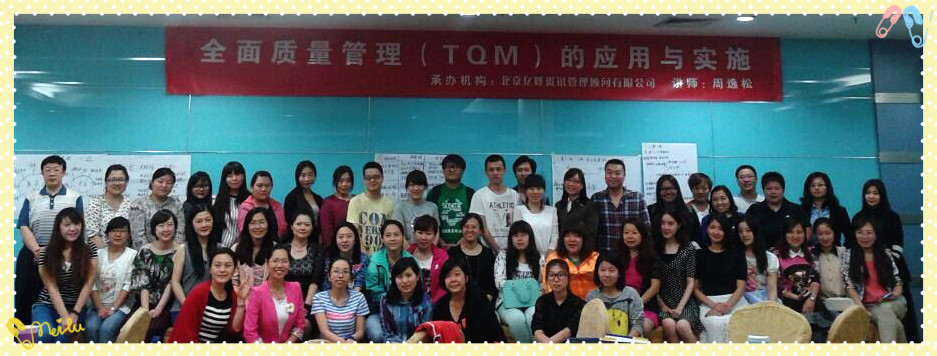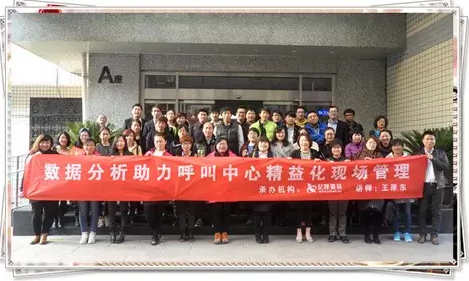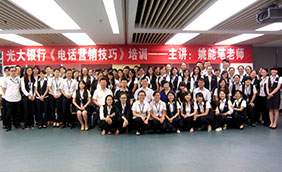运营管理
作为经理,我们总是愿意与支持我们,容易相处,并且不会总是挑战我们的人一起工作,这是人的天性,但是却不是最佳的处理方式。最顺畅的方法并不一定是最有生产效率的方法。
As managers, we tend to like to work with people who agree with us, who are easy to work with, who don’t directly challenge us. While this is natural, it’s not always optimal. The path of least resistance isn’t always the path to most productivity.
这个想法让我想到一个我最近在哈佛商学院管理论坛上推送的管理文章:“怎么管理你不喜欢的人", 简明指出在这种环境下,你需要抑制你的挫折与偏见。
This line of thinking was brought to mind recently when I retweeted a brief Harvard Business Review Management Tip on “ How to Manage Someone You Don’t Like, ” describing concisely the need to keep in check your own frustrations and biases when managing in such circumstances.
我有一个预感,这是一个容易引起共鸣的话题,果然,不到一分钟,我的TWEET就收到一个自尼日利亚拉各斯的经理的回馈:“这很好,因为它可以提高我们的管理质量。”
I had a quick inkling this was a resonant subject, as within a minute of my HBR tip tweet, I received a tweet back from a manager in Lagos, Nigeria: “this is nice becoz it will improve the quality of our leadership.”
很难争论,并且它让我思考自己在管理领域几十年的经验。 首先, 我会说很少会有人喜欢管理不喜欢的下属;人类开性趋于与人相处,不是寻求冲突,我也喜欢团队支持,得到团队的充分信任,在大型组织中得不到充分的协作,基本上什么也完不成,但即使那样,我仍然要说,仍然有引引些人我不喜欢,不是没有。所以,我想说的不是喜欢,不喜欢或者处理方法。
Hard to argue with that… and it made me think about my own experiences in this realm over several decades of management. First off, I’d say there were very few people out of all those I’d managed whom I could really say I didn’t like. Full disclosure: I’m by nature a consensus-builder, tend to get along with people, not seek conflict. I’ve always loved team sports, big believer in the power of teams in business, feel little of substance is accomplished in a large organization without complex collaboration. But that said, notice I still said very few people I didn’t like, not none. Accordingly, my modest contribution to the management topic of liking and disliking and dealing with it.
如果你发现你有这种问题-必须管理一个你不喜欢的有能力的员工,你应该怎么办呢?(重要的是有能力的员工,因为一个不讨人喜欢,并且绩效很差的员工,不会在团队里面呆很久的)我的建议是:
So if you find yourself in this difficult bind – managing someone who’s a capable employee but you’re genuinely not liking – how should you approach it? (It’s important to say “capable employee, ” since if the individual is a weak performer and not liked, odds are his or her stay in the role won’t be a long one.) My suggestions:
接受它,它仅仅是人的开性,接受不可避免的人际冲突,不要自己折磨自己,只需认为这是一件普通事,寻找一些建设性的泄压途径,不要沉浸悲观之中。
Accept it, it’s just human nature, accept the inevitability of interpersonal conflict – Don’t agonize or beat yourself up over it, but assume in the normal course of human events this is a normal occurrence… and look for constructive openings rather than dwelling on negatives.
认识到这是生意,不是娱乐,不要放太多的情感其中,因为当我做一些困难的,令人生气的安排时,我经常告诉我的下属,这就是我为何叫它为工作,不是玩,如果它是玩,那么我们也不会得到任何报酬。记住,这是生意,不是友谊,即使动荡的关系能够商业利益,也要区分开来。
Recognize this is business, not pleasure, and drain the emotion out of it – As I used to tell my employees during especially hard and irritating assignments: “Hey, that’s why it’s called work, not play. If it were play, we wouldn’t be getting paid for it.” Remember these are business relationships, not friendships. Even turbulent business relationships can yield business benefits. Compartmentalize.
尽量换位思考,无论在管理,还是生活中,这总是最实用的。人无完人,每个人都有错,完全有可能造成脆弱关系是你,也可能是你的行为的一方面造成员工对你抵触,完全有可能。
Try as best you can to see things through the eyes of others – Always a ‘best practice’ in management and life. No one’s perfect; all of us of course have faults. It’s entirely possible some of the fault in a fractured relationship is yours. Might there be aspects of your behavior that are causing an employee to relate to you in persistently frustrating ways? Might such perceptions be legitimate? Indeed possible.
必须承认创造性和创新是紧张,冲突,压力和烦乱的副产品,最好的也是最后的,最重要的一点,从公司利益出发,无论对的,错的,中性的,当我回想起自己曾经经历的或得见证的最大的管理冲突,经常是与最聪明的,那些脾气最差的也是最能够产生最敏锐的产品与客户观点,合理的讨论,争论甚至争斗都可能发现最好的方案。我乐意与这样的人工作吗?我乐意有这样的过程吗?当然不!但我乐意最后的结果,毫无疑问!
Recognize that creativity and innovation are often byproducts of tension, conflict, stress and agitation – Best for last, this is the most important point, with the most organizational upside. Right, wrong or indifferent, when I reflect back on some of the biggest management-employee conflicts I had (and witnessed), they were generally with the brightest individuals. Who also were the most cantankerous, invested, and ultimately capable of the keenest product and consumer insights. Which generally resulted from considerable discussion, debate and struggle before solutions were found. Was I always happy with the person or the process? No. But was I often pleased with the end results? Unquestionably.
不是所有难于相处的人都有多才的,然而你做为一名经理人,你应该能够从麦壳里区分出麦粒,而不是把你的精力浪费在不必要的地方。但是我遇到的最有才能的人也往往是最难相处的。他们经常会有一引起创造性,关键的想法。
Not all difficult people are talented, and as a manager you want to be able to separate the wheat from the chaff and not squander your finite mental energy unnecessarily. But some of the most talented people I ever met in business were also the most difficult. They contributed a great deal in terms of creativity and critical thinking.
他们不容易相处,但坦途未必能把你带到你想去的地方
They weren’t easy, but the road easiest traveled doesn’t always get you where you most need to go.
转载自《世界经理人》
精彩瞬间
Moment








.gif)
.gif)
.gif)
